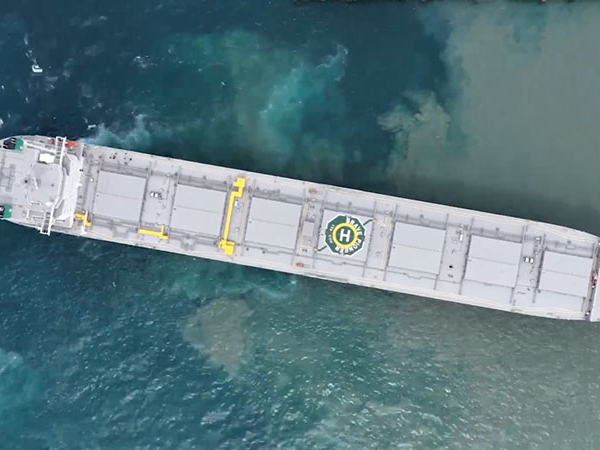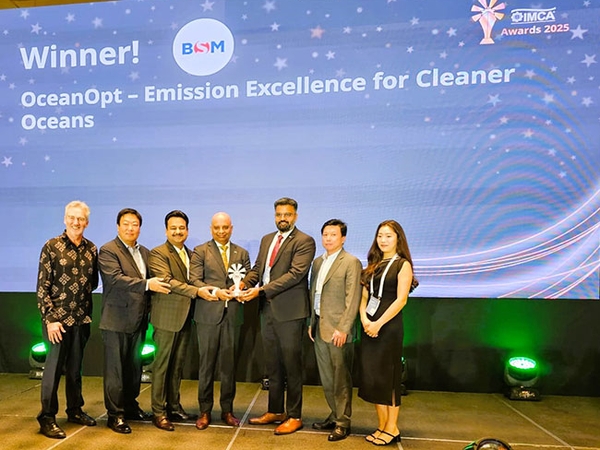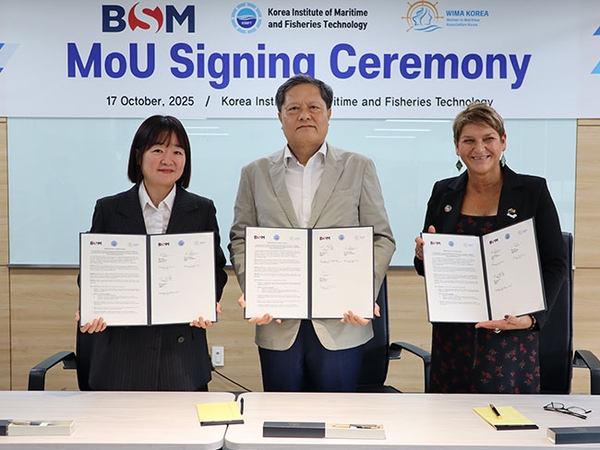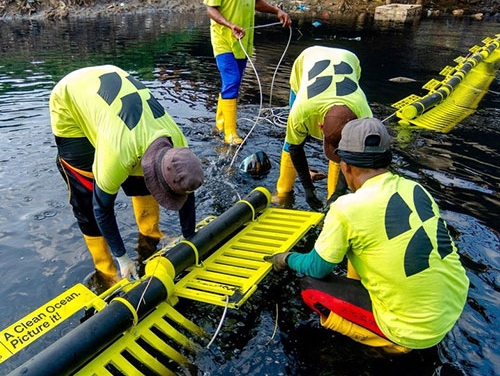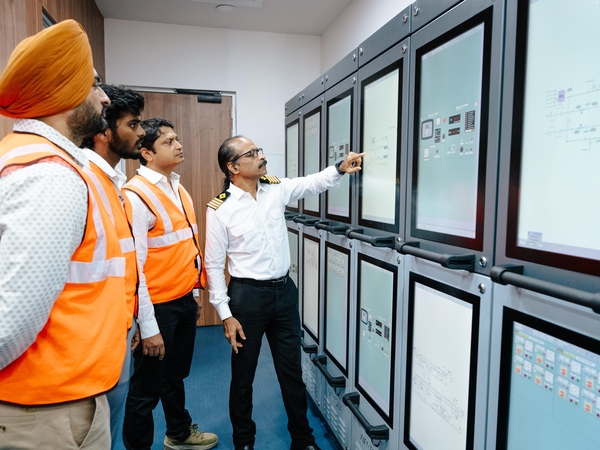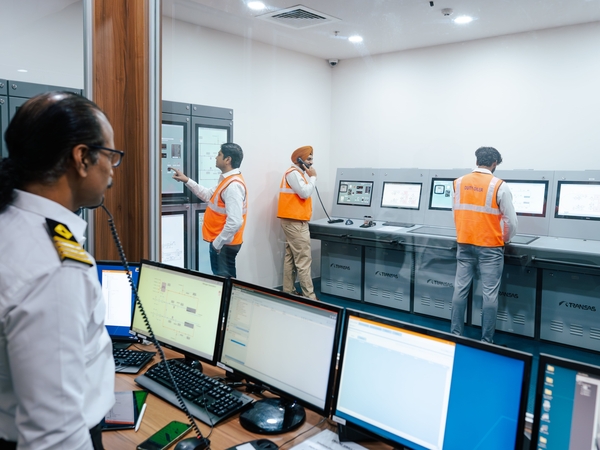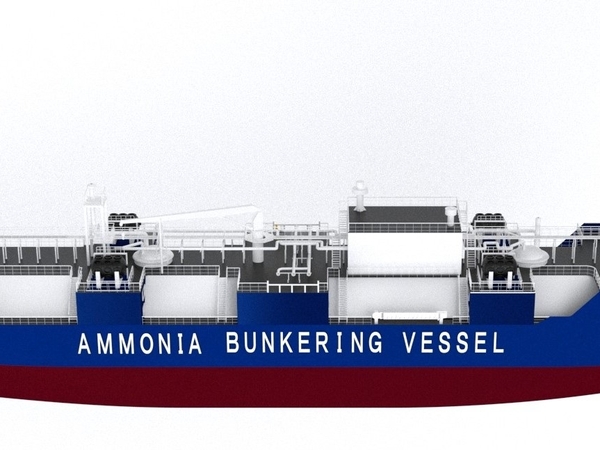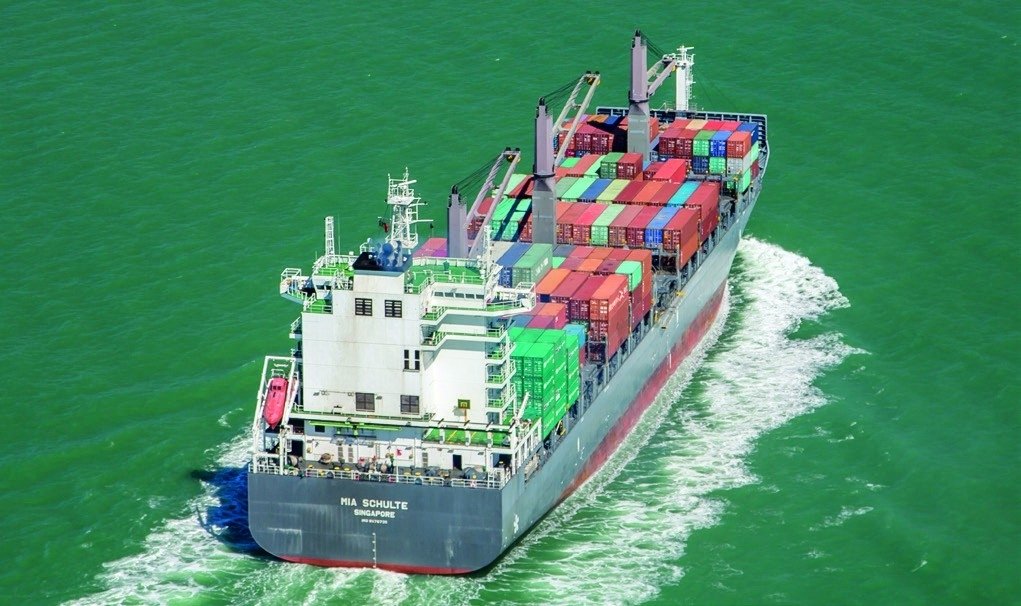
Bernhard Schulte Shipmanagement (BSM) Singapore’s chief executive tells Rebecca Moore why he is trying to implement a change when it comes to ultra large container ship safety
Container ship safety is at the top of the agenda for Bernhard Schulte Shipmanagement (BSM) Singapore.
BSM Singapore managing director Captain Raymond Peter is chairman of the Containership Safety Working Group, which was established by DNV GL in 2016 and includes container ship owners and operators.
The group was launched due to concern among the industry about container ship safety, due to larger vessels and greater exposure to risks.
He said that BSM is closely involved with the local Singapore container community, trying to create awareness of risks. “Container ships do not always know what they are carrying on board – last-minute cargo will come in and it could mean that ships are carrying 5-10% more weight without realising this.”
BSM is using Containership Safety Working Group as a forum to get the message across and facilitate change.
“We are trying to create awareness and communicate the safety risks.”
Explaining why BSM was so focused on safety, he explained “Container ships are getting larger and this affects safety. Safety equipment being used has not moved up to reflect the larger size of vessel.”
Since 2,000, there have been 143 reported container ship fire incidents. At the same time container vessels have increased in size dramatically from the largest of 9,500 TEU in 2000 to 20,000 TEU in 2018.
The group is also concerned about other greater safety challenges due to the larger sizes of box ships, including cargo safety, stowage, lashing and deceleration; navigation manoeuvrability, structural integrity and design.
It has decided that its main focuses for 2018 will be cargo stowage and lashing, fire safety and cyber security.
Captain Peter explained “We would like to see changes with IMO and are trying to make them aware that they need to look at requirements for very large container vessels differently.”
He summed up, “container ships are carrying more cargo and the task of the container ship working group is to communicate with the decision makers at IMO to ensure that the operational risks associated with the increase of size are recognised and adequately mitigated in future SOLAS revisions.”
Eying expansion
BSM has 12 container ships under full management in Singapore. They include ships ranging from 2,000-10,000 TEU, with owners including COSCO and Maersk. BSM’s global portfolio consists of 64 under crew management and 95 under full management. Captain Peter is ambitious to increase BSM Singapore’s ships under management and aims to add another 12 ships over the next year or two. He is also keen to add ultra large ships to Singapore’s portfolio, especially as the company is so focused on improving the safety aspect of this size of ship.
The market consolidation and merger and acquisition activity that has taken place in the container market is something that he is very aware of. “We have had one or two vessels change hands, and we did have issues when Hanjin went bankrupt” he commented. “But this is the cycle of life. We keep ourselves very close to what is happening with our ear on the ground to hear market news.”
The consolidation in the market place - including Hanjin’s closure – has made BSM very cautious. Raymond elaborated “We are very careful, we make sure our payments come in on time every month, and we are very strict with our account receivables.”
Looking at upcoming trends in the market place, he warned “More consolidation will happen, we have not seen the end of it. Everyone is waiting to see what will happen with the 2020 low sulphur rules and what will happen with the use of LNG.”
He said that the emergence of 20,000 TEU container ships would have a knock-on impact down the chain, with 3,000-10,000 TEU still being the “work horses”, but he suggested that 4,000 TEU vessels would replace the 2,000 TEU box ships.
Looking ahead, he emphasised that his concern was about safety of the larger container ships. “That is our focus. At the end of the day if there is an incident at sea and help doesn’t arrive on time, life is at stake."
Containership Safety Working Group aims:
- Share knowledge and understanding.
- Identify risks.
- Discuss operational experience.
- Discuss current and future safety regulations.
- Identify best practice.
- Develop solutions for improved safety.
- Discuss cost impacts.
- Provide feedback and recommendations to the committee at the next annual meeting.
Containership Safety Working Group conclusions on fire safety:
- Existing SOLAS fire safety requirements have not kept pace with the growth of container ships.
- Generally, container ships are not able to provide adequate fire-fighting to reach the top tier of containers (the full height of the container stacks on deck) or generate an effective water barrier between container bays.
- Container ships are better prepared in an early stage of fire, to suppress and extinguish fire inside a container located in the lower tiers with safe access and from a safe standing distance.
- The industry does not generally invest sufficient additional money into fire-fighting equipment, over and above the minimum requirement.
- CO2 systems are deemed to be a partially effective means to extinguish container cargo fires in deck cargo holds but more training and testing of CO2 systems is required for effective operation.
- Optional class notations for enhanced fire-fighting capability should be made mandatory.
- Fire detection systems based on smoke detectors and visual watch keepers alone are not deemed to be adequate.
- There is insufficient fire-fighter training specifically for container ships, with emphasis on fighting cargo fires in container holds and on deck stacks.
Interview by Container Shipping & Trade July 2018
